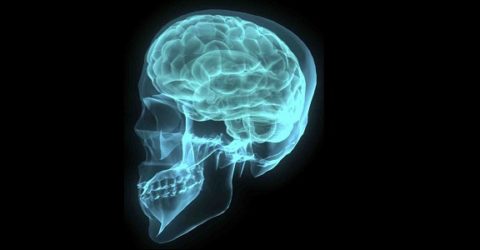Lockdown one year on – the mental depletion of online living
Mental depletion is becoming an increasingly well-recognised phenomenon, with the internet simultaneously helping and hindering efforts to recharge

It’s exactly one year since Boris Johnson made a live television announcement which effectively consigned the entire nation to house arrest.
It’s easy to forget that the Prime Minister’s initial announcement was only intended to cover a three-week period.
Ever since, our liberties have been curtailed in ways even wartime restrictions didn’t require, while most people’s lives are two-dimensional copies of their former incarnations.
More and more people are waking up to the realisation that the last year has caused catastrophic damage to mental health – both collectively and individually.
From teenagers posting tic videos to the huge rise in self-harm among schoolchildren, much of this burden has landed on younger generations.
Yet adults have also been experiencing unprecedented levels of anxiety, isolation and mental depletion.
MoreWhat’s it like living without the internet?
The latter is particular concerning, since Brits have historically not been good at dealing with mental health issues – or even acknowledging them.
However, understanding the principles and symptoms of mental depletion can help to effect positive change.
All things to all people
As is often the case, the internet has been both our saviour and our damnation over the last year.
We’ve relied on it for work and education, for socialising and entertainment, for information and advice.
Yet all that time in front of a screen isn’t healthy.
Humans are pack animals, not solitary creatures, and we suffer in isolation.
Attempting to replicate real-world activities online has been an understandable reaction to COVID-19, but it doesn’t stimulate our senses in the way interpersonal interactions would.
The cumulative effect is a numbing weariness with technology, a growing resentment of those glowing screens, constant lethargy and a dwindling attention span.
These are all examples of what experts refer to as mental depletion – a lack of mental reserves or constant stress that leads to anger and anxiety, depression and detachment.
It’s why your heart sinks when your works laptop loads up on a Monday morning to reveal a diary full of Zoom calls, or why you find yourself mindlessly scrolling through social media.
Your mind is craving more than the internet can give it. The results include restlessness, frustration and a lack of concentration that means we may forget things almost instantly.
Ways to redress the balance
We’ve all spent too much time online in the last year, so an obvious step is to unplug more.
Instead of mechanically scrolling through Facebook, read a book. Instead of Zoom calls, ring people. Instead of installing Minecraft, install Pokémon Go and take your battles outside.
Even when activities rely on the internet (like streaming media), try to use different devices to the ubiquitous smartphones and tablets. Relocate to the lounge and turn on the TV instead.
HelpHow to switch off after a day spent online
We’re almost a third of the way through spring now, and there’s life and colour at every turn. Head to your nearest park and enjoy the sunshine, or go to a garden centre if it’s raining.
As restrictions are slowly rolled back, we can all start resuming the activities that used to keep us mentally recharged – sports, meals out, meeting friends, domestic travel…
And in the meantime, quiet time alone is one of the best ways to combat mental fatigue, whether you’re soaking in the bath, doing mindfulness body scans or simply daydreaming.
You can replenish your mind just by closing your eyes and letting your thoughts freewheel, temporarily halting the constant bombardment of input from servers and screens.
It might seem counter-intuitive if you’re busy or trying to stave off boredom, but moments of quiet contemplation are far better for our minds than filling every moment with inane activities.






